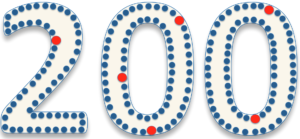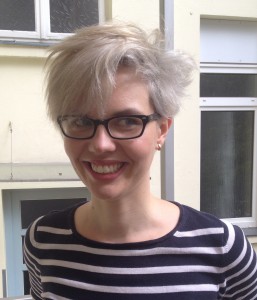6 out of 200: Mathematics – Freedom and Creativity
BLOG: Heidelberg Laureate Forum


Meet Sira Gratz in this Q&A series with 6 out of 200 mathematicians or computer scientists participating at the 2nd Heidelberg Laureate Forum, September 21-26, 2014. 24 Laureates (Abel Prize, Fields Medal, Nevanlinna Prize, Turing Award) will attend the forum together with them. For a full week Heidelberg in Germany will be the hot spot of mathematics and computer science.

Name?
Sira Gratz
Nationality? Swiss/ German
Where are you based? Hanover, Germany
What is your current position? I am a PhD student.
What is the focus of your research? I am interested in combinatorial representation theory, more precisely in cluster algebras and cluster categories. It is a very young and active field and what fascinates me most about it is the interplay of rather abstract category theory and its elegant proofs with very hands-on combinatorics, that often allows me to get my hands dirty and do some proper calculations. For example I get to draw cute pictures and play with triangulations of surfaces which help me visualize more complicated concepts — I like that.
Why did you become a mathematician? I have always been fascinated by the unparallelled exactness of mathematics. While working in pure mathematics allows for a lot of freedom and creativity when approaching a new theory, the reliance on axioms provides a sort of safety net that, once determined, undermines any lengthy interpretations. It is what it is until new interesting aspects are discovered.
Anything like a favourite project? Currently I am finishing a project on a formal way to describe cluster algebras of infinite rank. Cluster algebras are certain commutative rings with a combinatorial structure on a distinguished set of generators, called cluster variables, which can be grouped into overlapping sets of a given cardinality, called clusters. Classically, clusters are finite. However the theory can be extended to allow countable clusters, giving rise to cluster algebras of infinite rank. Recently, cluster algebras and cluster categories of infinite rank have received more and more attention. I show that in the category of rooted cluster algebras, which are essentially pointed versions of cluster algebras, every cluster algebra of infinite rank can be written as a colimit of cluster algebras of finite rank. Thus locally, cluster algebras of infinite rank can be treated like cluster algebras of finite rank, which may help in trying to extend theories for cluster algebras of finite rank to their infinite versions. This has been my favorite project so far, I’d say.
What about your life beyond research? My dog keeps me out and about every day and in general I like spending time outdoors, especially skiing or hiking in the mountains. I also like trying out new things — combining that with my interest in mathematics I have participated in a couple of Science Slams recently, which is great fun.
Why did you apply for the HLF14? First, the prospect of meeting some of the big names in mathematics in person was of course terribly exciting and further it seemed like an excellent place to meet many fellow young researchers and learn about their experiences about starting off in academia.
What do you expect from this meeting? I am looking forward to meet inspiring people from various fields, prestigious Laureates and young driven researchers alike, and learn about what it is that makes their field of expertise so fascinating to them, to hear about their research and talk to them about mine in return. The forum would provide me with an invaluable chance to learn from the Laureates’ vast experience on doing research, and to hopefully form engaging acquaintances with peers which might lead to future collaborations.
Any Laureates on your list you would definitely love to talk to? I am intrigued by the prospect of having the opportunity to meet so many very esteemed people in one place, and don’t really want to narrow it down to a few names.

